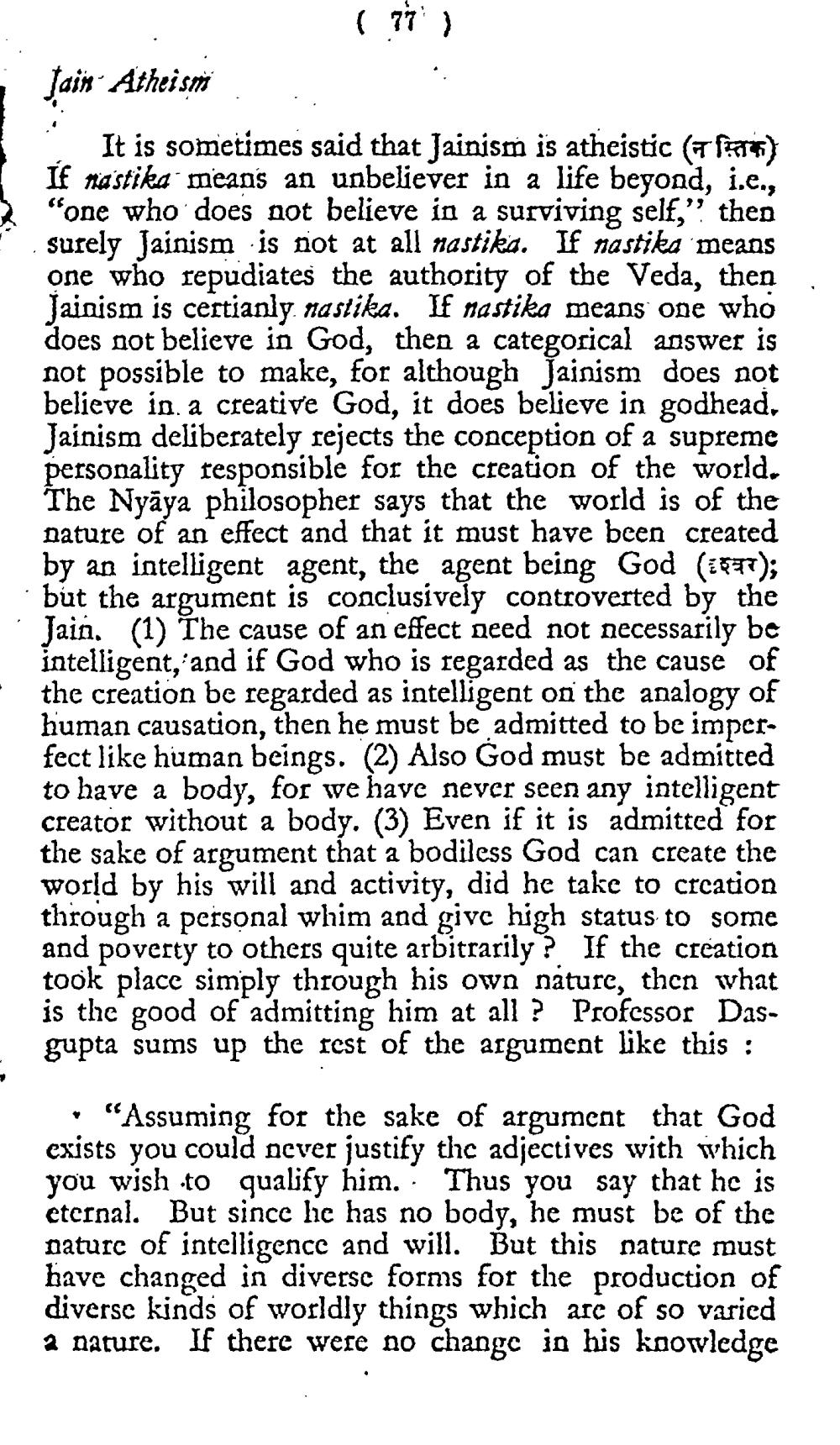________________
( 77 ) Jain" Atheism
It is sometimes said that Jainism is atheistic (189) If nastika means an unbeliever in a life beyond, i.e. "one who does not believe in a surviving self,' then surely Jainism is not at all nastika. If nastika means one who repudiates the authority of the Veda, then Jainism is certianly na stika. If nastika means one who does not believe in God, then a categorical answer is not possible to make, for although Jainism does not believe in. a creative God, it does believe in godhead. Jainism deliberately rejects the conception of a supreme personality responsible for the creation of the world. The Nyāya philosopher says that the world is of the nature of an effect and that it must have been created by an intelligent agent, the ageat being God (1F7T); but the argument is conclusively controverted by the Jain. (1) The cause of an effect need not necessarily be intelligent, and if God who is regarded as the cause of the creation be regarded as intelligent on the analogy of human causation, then he must be admitted to be imperfect like human beings. (2) Also God must be admitted to have a body, for we have never seen any intelligent creator without a body. (3) Even if it is admitted for the sake of argument that a bodiless God can create the world by his will and activity, did he take to crcation through a personal whim and give high status to some and poverty to others quite arbitrarily? If the creation took place simply through his own nature, then what is the good of admitting him at all ? Professor Dasgupta sums up the rest of the argument like this:
"Assuming for the sake of argument that God exists you could acver justify the adjectives with which you wish to qualify him. Thus you say that he is etcrnal. But since he has no body, he must be of the gaturc of intelligence and will. But this nature must have changed in diverse forms for the production of diverse kinds of worldly things which are of so varicd a nature. If there were no change in his knowledge




